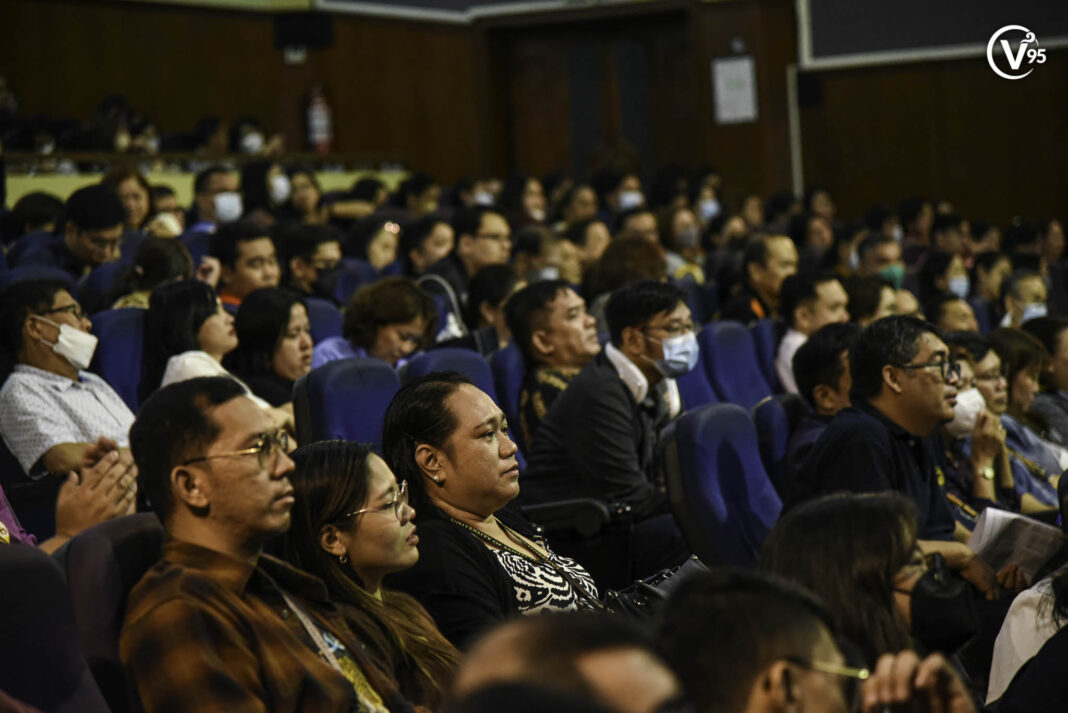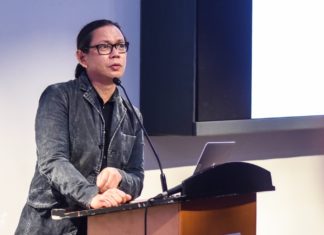TENURED professors teaching general education subjects are exhausted and confused by the varying policies and modalities in the different colleges and faculties, hindering the “effective delivery of quality education,” as a faculty club head put it.
Scheduling and classroom conflicts arise as the prevailing hybrid learning mode makes it burdensome to accommodate both onsite and online classes on the same day.
“[K]ung saan-saan kami naghahanap ng lugar,” Asst. Prof. Crisencio Paner of the UST Department of Biological Sciences told the Varsitarian. “And then there’s also the problem of the internet, which is not actually functioning.”
“Kaya ‘pag may onsite tapos biglang online, so diyan namomroblema ‘yong professor kasi una, saan siya pupwesto. ‘Di puwedeng pumuwesto siya sa faculty room.”
Paner has been with UST for 28 years, teaching Science, Technology and Society at the Faculty of Arts and Letters (AB), College of Commerce and Business Administration, Faculty of Engineering, and the Faculty of Pharmacy, among others.
Apart from the lack of facilities, Paner lamented that some colleges issue class schedules at the last minute, forcing departments to scramble and rush.
“May mga na-experience ako before na minsan, last minute na nagbibigay ang certain college ng schedule, so ‘yong department, nale-late rin kasi nga may mga late rin na nagbibigay bawat colleges,” he said.
The “complexities” of these concerns prompted Asst. Prof. Rene Tadle, the UST Arts and Letters Faculty Association (ALFA) president, to request a “constructive dialogue” with the UST Faculty Union (USTFU) to develop “consistency in modality determination.”
“The prospect of preparing multiple versions of the same course, each tailored to different academic units, understandably presents challenges that hinder the effective delivery of quality education,” Tadle wrote to USTFU President Asst. Prof. Emerito Gonzales in August 2023.
“Of equal concern is the potential for schedule conflicts, which may inadvertently arise due to differing modalities. This could, in turn, result in unintended financial burden for our faculty members.”
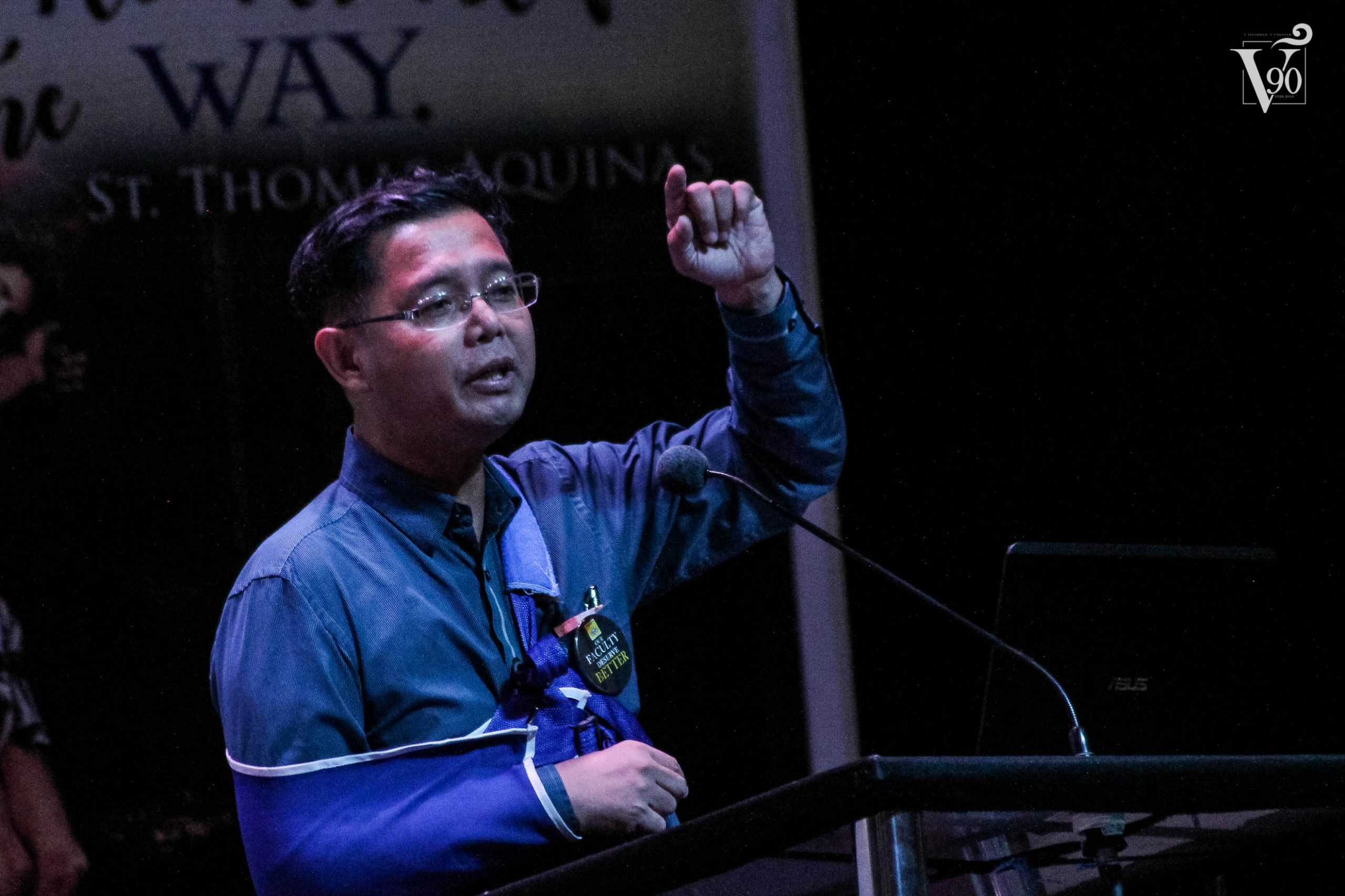
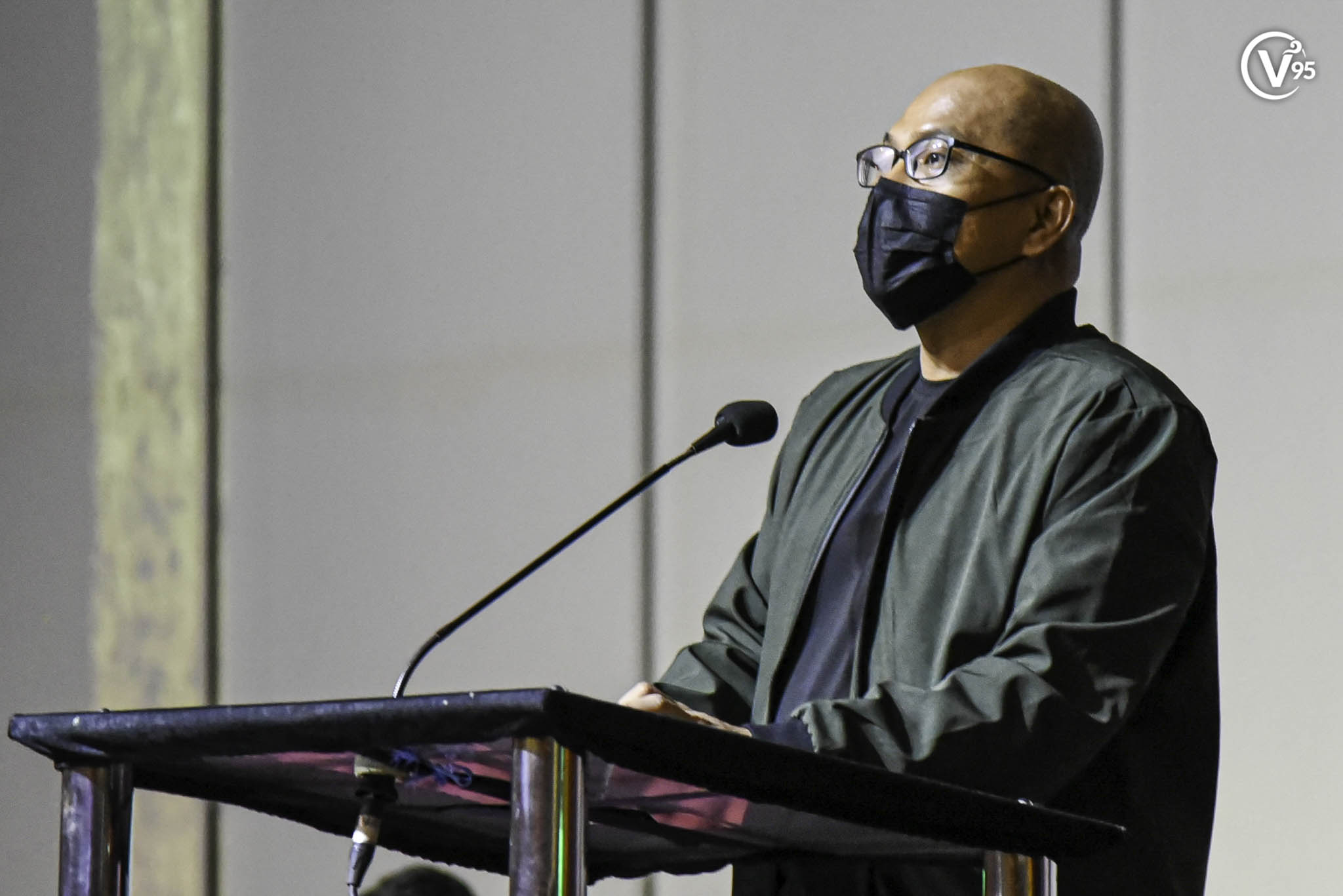
‘Where’s the logic in that?’
In an interview with the Varsitarian, Tadle said general education instructors are bogged down by a provision in the USTFU’s Collective Bargaining Agreement (CBA) that tenured professors must take a 21-unit teaching load per term (non-tenured faculty can take only up to 12 units).
“[M]insan mahirap mag-assign dahil may mga teacher na para ma-accomodate ‘yong 21 units, they have to teach in two or more colleges,” he said. “Kaya there is a possibility that in one college, face to face, and, in another, online. Diyan nagrereklamo ‘yong mga teacher.”
Tadle said some of his colleagues living in provinces would travel to UST after conducting virtual sessions just to attend a 90-minute class because the modality in their assigned college is onsite.
The University will stick to hybrid classes for Academic Year 2024 to 2025 to “maximize opportunities to integrate emerging technologies into teaching and learning,” Prof. Cheryl Peralta, the vice rector for academic affairs, earlier told the Varsitarian in an email interview.
Academic units have imposed varying combinations of onsite and online classes. The College of Nursing and AB, for instance, allow general education courses to follow a 50-50 blend of in-person and virtual delivery. Meanwhile, the Conservatory of Music and Faculty of Pharmacy have adopted a 90-10 distribution.
Such variations feel like “dancing to the tune of cha-cha, salsa, and tango all at the same time,” Asst. Prof. John Vincent Ignacio of the Department of Philosophy told the Varsitarian.
“It’s kind of confusing for the general education faculty member because, for example, you’re teaching one subject and you’re serving three colleges with three different modalities – one is 50-50, one is 75-25, the other is 90-10 – it means […] you have to design your course, the same course, three times, and that’s a big problem,” he said.
“The same subject, but delivery is different. So where’s the logic in that?”
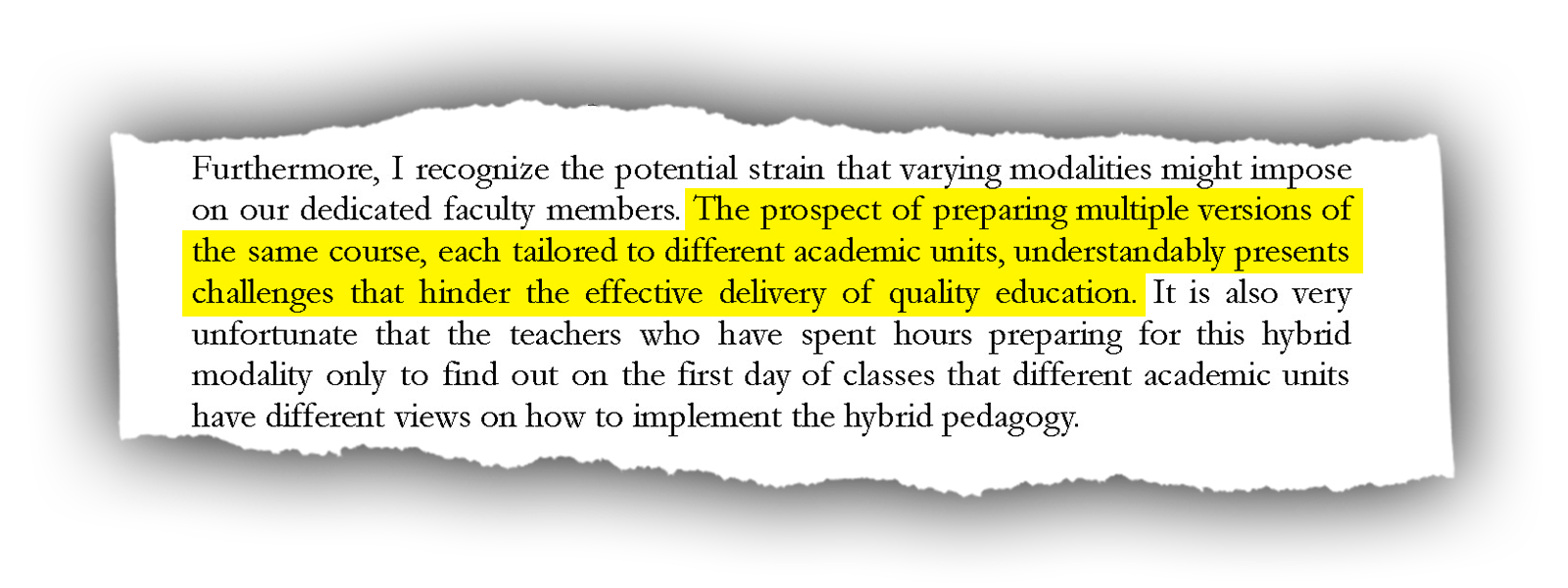
Ignacio has been teaching ethics, logic, and critical thinking primarily at the College of Nursing and AB for over two decades now. He credited the college for giving him a free hand in determining the combination of modalities to follow – a policy that academic units can follow.
But that has not been the case.
“The modality […] is determined by the design of the course, not the other way around,” Ignacio said. “Some general education faculty members were forced to reevaluate everything, to change everything they prepared before the semester started.”
“It’s kind of frustrating because right before the semester started, there was a seminar on mental health, and then this created mental stress.”
For this article, Peralta declined to be interviewed “for now” to attend to “more pressing concerns.”
Uniformity
General education professors believe that departments must have the final say on the modalities and academic policies imposed on them.
“[T]he department knows how to deliver its course, not the academic unit it’s serving,” Ignacio said. “For example, philosophy. I’m teaching philosophy. So, the standards of philosophy should be followed, not the standards of, let’s say, the College of Nursing.”
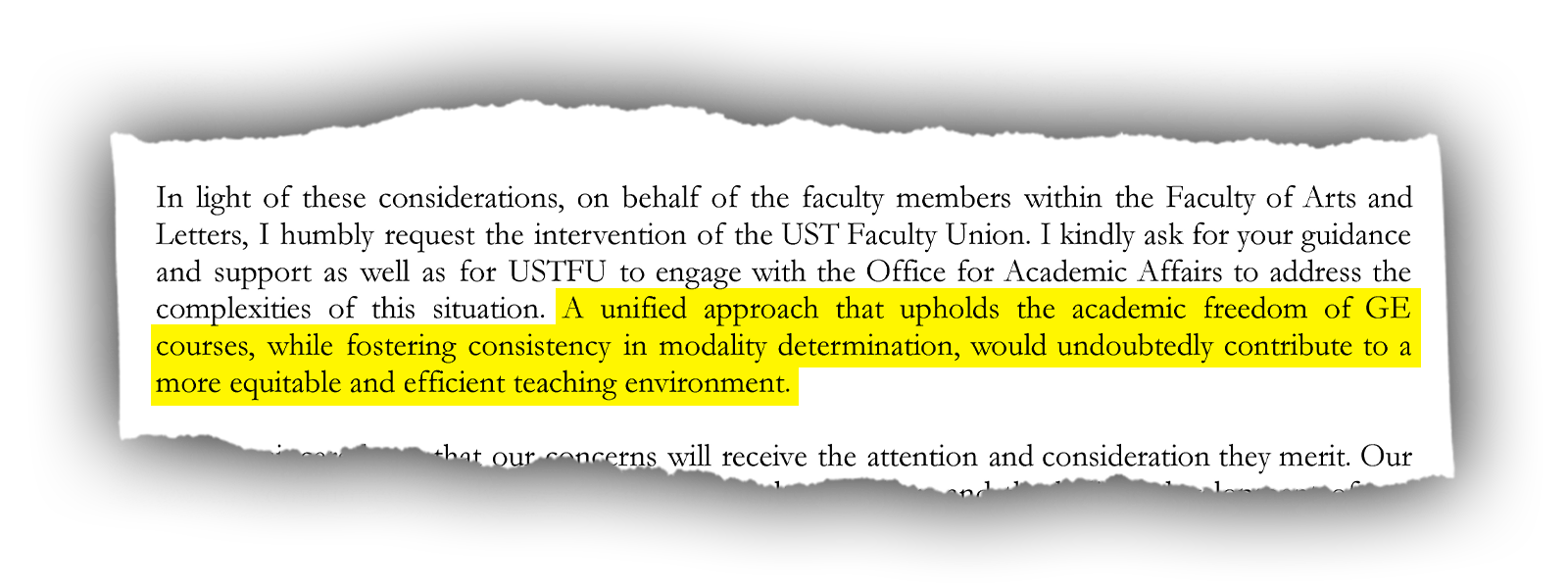
The Institute of Religion, for instance, has been using the same course outline, deliverables, and grading system across all academic units, said Asst. Prof. Gemma Aboy, a faculty member.
“May pagka-autonomous kami, like we have our own grading system, we have our own class record so, as much as possible, kinakausap, for instance, ni office si AB na, ‘Heto ‘yong meron kami’ and this is already approved by the academic affairs,” she told the Varsitarian.
Aboy has been teaching theology in AB and the College of Fine Arts and Design. In imparting theological knowledge to two nonidentical units, she emphasized the need for flexibility on the part of the faculty.
“Ang attitude dapat is willing ka na matuto,” she said, adding, “Alamin mo, aralin mo so that you can adjust to the needs. Otherwise, hindi kayo magkikita ng estudyante mo. So, room for dialogue is always important.”
But Paner suggested the best way to go is for faculty members to focus on one college only to foster “familiarity.”
“I think it’s really better that we are only assigned to one college all the time so that soon, we’ll get to know everything about the college we’re teaching, the environment there, the students’ personalities, their interests,” he said. “But if you are always assigned to different colleges, it’s quite a hard task for us adjusting, trying to decipher whether they are interested or not, or whether what I am teaching is, you know, they really need it.”
In the end, USTFU must bring the matter to the table, Tadle said, as top officials do not usually consult the faculty in crafting academic policies.
“This is supposed to be a partnership,” he said. “Education is a partnership and the teachers play an important role in the policies to be implemented when it comes to classroom teaching or even online teaching.”
“What should be clear here is we should involve the department chairs, we should involve the deans, and we should involve the faculty union and some teachers to be able to come up with certain solutions.”
The USTFU has not yet responded to Tagle’s letter or tackled it during the union’s general assembly in October 2023.
Gonzales, however, had promised to raise the matter during a meeting with the higher-ups, said Tadle, citing informal conversations with the union chief.
“What I just await now is for them to report to us what transpired or as to when this meeting has taken place or as to whether this meeting has already taken place,” the ALFA president said. “So it’s something that I would follow up.” With reports from Sofiah Shelimae J. Aldovino


